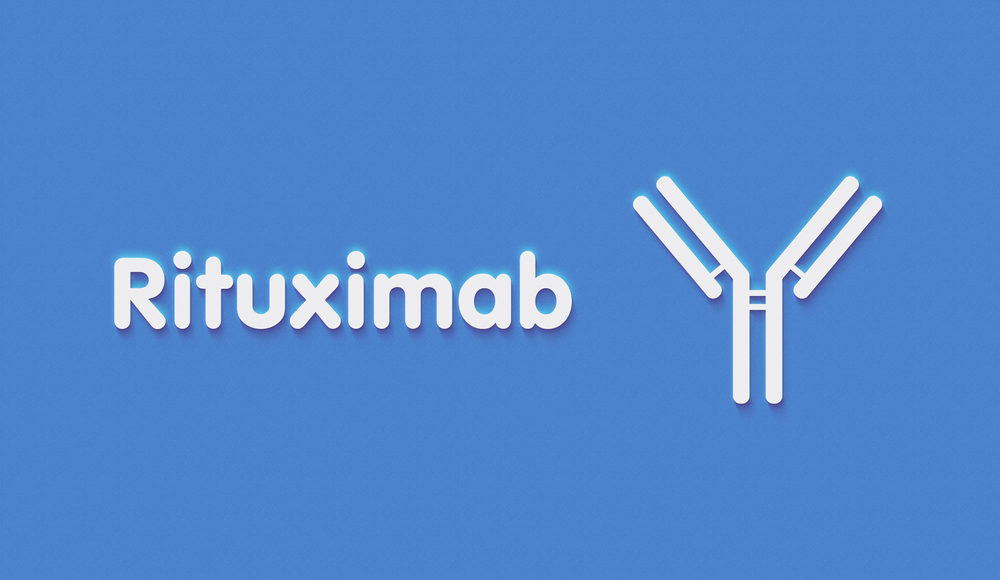Rituxan Improves Muscle Strength, Allows Refractory MG Patients to Reduce Steroids, Study Says
Written by |

Treatment with Rituxan (rituximab) provided sustained clinical improvement, increased muscle strength, and extended the time before disease worsening in myasthenia gravis, according to researchers.
It also allows myasthenia gravis (MG) patients who are resistant to conventional treatment to reduce their dose level of steroids, they said.
Their study, “Rituximab in refractory myasthenia gravis: extended prospective study results,” was published in the journal Muscle & Nerve.
Rituxan is an antibody targeted to a protein called CD-20, present in B-cells, a type of immune cell that plays important roles in inflammation and involved in the development of MG.
When rituxan binds to CD-20, it lowers the levels of B-cells, which may slow the progression of disease and reduce the need for other medications. Although this treatment seems beneficial in treatment-resistant (refractory) myasthenia gravis, long-term data was needed.
Researchers from the University of Alberta, Canada, performed a prospective, open-label study from 2012 to 2018 to evaluate the outcomes of treatment with Rituxan in patients with treatment-resistant MG.
A total of 22 patients received one of two rituximab regimens, followed by repeated maintenance cycles in the case of disease worsening, or relapses.
In regimen one (nine patients), Rituxan infusions of 375 mg/m2 were administered once a week for four weeks, then once every four weeks for two additional infusions.
In regimen two (13 patients), infusions of 750 mg/m2 (up to a maximum of 1 g per dose) were given twice, with two weeks between infusions. No serious adverse events occurred with infusions.
Patients were followed-up for a median time of 28.8 months; the primary outcome measure was the change in manual muscle testing (MMT) score, a test for evaluating the strength of muscles, from study initiation to the most recent follow-up.
Complete blood cell counts, liver enzymes and B-cell counts were monitored throughout the study.
Rituxan was associated with a significant improvement in muscle strength in patients positive for AChR (acetylcholine receptor) antibodies or MuSK (muscle-specific tyrosine kinase) antibodies.
No changes were observed in seronegative patients.
MuSK-positive patients showed the most improvement, with a mean 89% reduction in MMT scores, while AChR-positive patients demonstrated a 47% reduction.
Regimens one and two proved equally effective, leading to comparable improvements in MMT scores.
Treatment with Rituxan also enabled those patients taking prednisone (an immunosuppressant steroid) to significantly reduce their daily dose of the drug.
Another important effect seen in the treated patients was a significant extension in the time patients were without relapses, following a single cycle of Rituxan.
The average time to first relapse was 17.1 months and the average time to second relapse following a second cycle was 13.5 months.
Ten relapses occurred, with the average time to first relapse of 17.1 months; these were not associated with recovery of B-cell counts.
Three patients experienced prolonged B-cell depletion after one cycle of Rituxan, representing less than 1 percent of CD19-expressing B-cells for 24 to 34 months.
All other patients recovered their B-cell population in an anticipated time period of 12 months.
Rituxan may be a promising therapy option in patients with refractory myastenia gravis, but researchers caution physicians to closely monitor patients’ B-cells.
“Given the risk of infection inherent with prolonged B-cell depletion, clinicians must be aware of this possibility, and we would advocate continued monitoring of B-cell counts in all patients receiving rituximab,” researchers wrote.



Leave a comment
Fill in the required fields to post. Your email address will not be published.